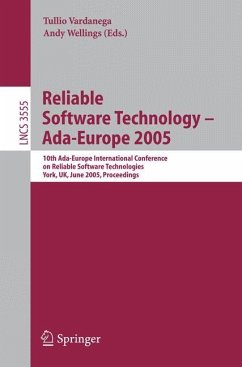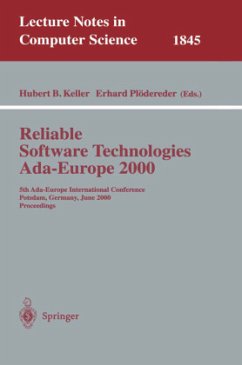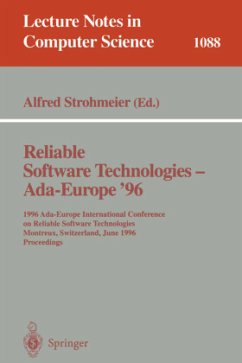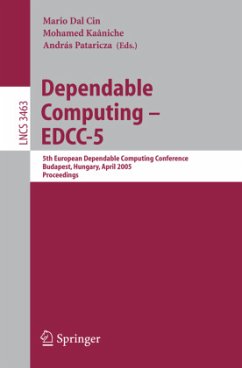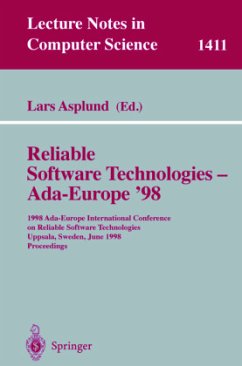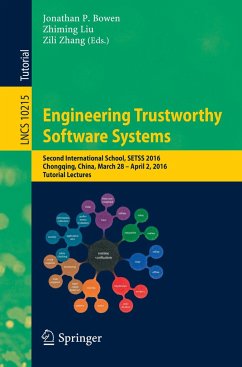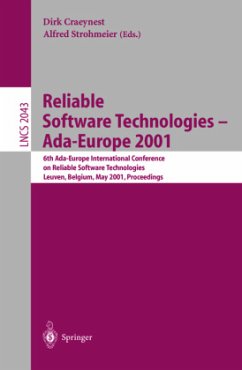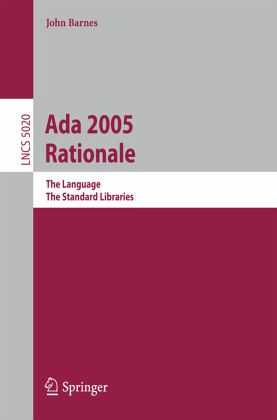
Ada 2005 Rationale
The Language, The Standard Libraries

PAYBACK Punkte
19 °P sammeln!
Ada 2005 is the latest version of the International Standard for the programming language Ada. Formally, it is an Amendment of ISO/IEC 8652:1995 (E) rather than a completely new standard. The primary goals for the new version were to enhance its capabilities particularly in those areas where its reliability and predictability are of great value. Accordingly, a number of intriguing and attractive ideas have been included and implemented in a coherent manner as appropriate to the level of perfection necessary for the diligent maintenance of a language standard.The Ada 2005 Rationale describes no...
Ada 2005 is the latest version of the International Standard for the programming language Ada. Formally, it is an Amendment of ISO/IEC 8652:1995 (E) rather than a completely new standard. The primary goals for the new version were to enhance its capabilities particularly in those areas where its reliability and predictability are of great value. Accordingly, a number of intriguing and attractive ideas have been included and implemented in a coherent manner as appropriate to the level of perfection necessary for the diligent maintenance of a language standard.
The Ada 2005 Rationale describes not only the changes from Ada 95 but also the reason for the changes. It starts with an introduction providing a general overview and this is followed by seven chapters focusing on OOP; access types; structure and visibility; tasking and real time; exceptions, generics, etc.; the predefined library; and containers. The book concludes with an epilogue largely concerned with compatibility issues.
The Ada 2005 Rationale describes not only the changes from Ada 95 but also the reason for the changes. It starts with an introduction providing a general overview and this is followed by seven chapters focusing on OOP; access types; structure and visibility; tasking and real time; exceptions, generics, etc.; the predefined library; and containers. The book concludes with an epilogue largely concerned with compatibility issues.





